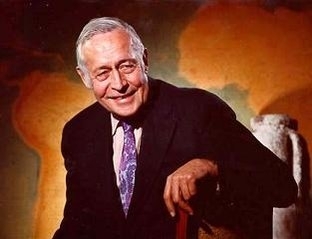Revelle, Roger Randall Dougan
Roger Randall Dougan Revelle (1909-1991), an American oceanographer best known for his pioneering studies of carbon dioxide balance in the oceans and its effect on climate change. In a seminal paper published in 1957, Revelle and Hans Suess argued that humankind was performing "a great geophysical experiment" and called on the scientific community to monitor changes in the carbon dioxide content of waters and the atmosphere as well as production rates of plants and animals. As Director at the Scripps Institute of Oceanography (1950-1964), Revelle assembled a faculty including Hans Suess and Charles D. Keeling that produced some of the most important research related to climate change and the global carbon cycle. He is also noted for fostering oceanographic exploration, presaging plate tectonics, contributing to the understanding of the biological effects of radiation in the marine environment, and for studies of human population growth and global food supplies. The breadth of his research and domestic and international service made him a statesman of science. Revelle was elected to the National Academy of Sciences in 1958 and received the Academy's Agassiz Medal "for outstanding achievements in oceanography" in 1963.
Further Reading
- Archives of the Scripps Institution of Oceanography. Roger Randall Dougan Revelle Biography.
- National Academies Press. Biographical Memoirs: Roger Randall Dougan Revelle.
